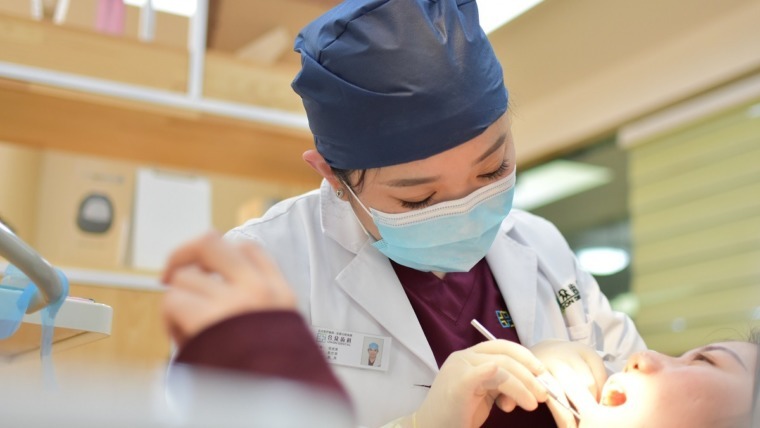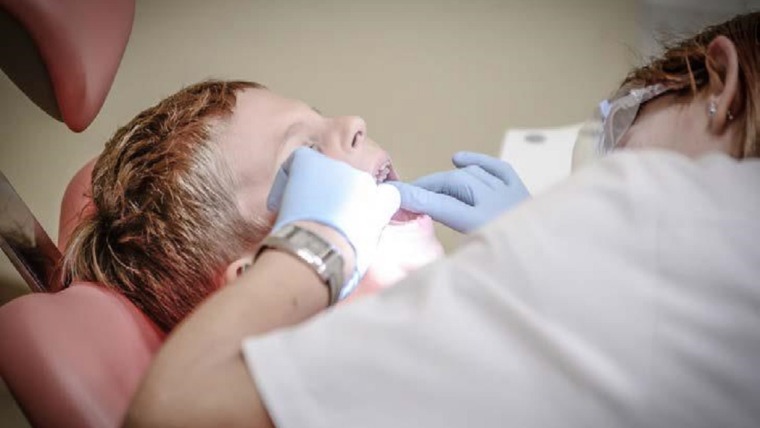
Written by Connie Rogers
I have found that there are many people who are concerned with their general health but forget about their teeth and oral health. They pay little attention to flossing or have an aversion to seeking out a dentist for preventative in-office dental care. However way you look at it, facts remain the same, you can’t have a healthy mind and body without a healthy mouth, teeth, and bones!
Commonalities between our skeletal system and oral health (Practicing Oral Health)
Our teeth have a lot in common with our skeletal system, hair, and fingernails. This is because Keratin is the primary component of the epidermis, hair, nails, and the enamel of our teeth.
Our bones are part of our hormonal system, and so is our oral health. This means we need to have a healthy endocrine, digestive, metabolic, and circulatory system to have a healthy skeletal system and oral health.
Our teeth are living tissue. Tooth enamel is ninety-six percent mineral content and is the strongest substance in the human body. Daily disruptive influencers can have a negative effect on tooth survival. This means sugar, gluten, caffeine, and trans-fats can harm our oral health!
Periodontal breakdown is a risk factor for osteoporosis. Using modalities to prevent periodontal disease is an important factor. Poor oral heal impairs taste buds, and poor gut microbiome can negatively influence bone and oral health. Consuming store bought juices, teas, and sodas with fluoride negatively changes our oral health and increases risk for bone fractures.
Some Disruptive Influencers (Practicing Oral Health)
1 Some of us that don’t even like milk products have thought long and hard about just maybe they need milk for strong teeth and bones. This can be considered one of the biggest myths of our time. The growth factor in rBGH dairy is orally active and is a key contributing factor to the incidence of endocrine-related disorders. Milk doesn’t provide us with the calcium content that our body can use. What I’ve found is organic green vegetables such as kale and spinach, are the best way to get and absorb calcium.
2 Our gut influences our oral health. Leaky Gut or poor gut bacteria influence our hormones, organs, bones and all bodily systems. Leaky gut means our intestinal permeability has been compromised and toxins can enter our bloodstream. Athletes know if they fail to address gut issues they can’t give 100% on the day of the big race. They most likely load up on sugar and caffeinated products forgetting about eating real foods for sustainable energy. Consuming coffee and surgery foods such as bagels, chips, cakes, cookies, crackers, gluten products and more can be the worst for our tooth enamel and our bones. Celiac Disease or gluten intolerance and sensitivities can cause us to be at risk for de-mineralization of our tooth enamel and affect nutrient absorption. When the digestive system is impaired, it does not properly release vital minerals into the body for use by the teeth in building enamel.
3 Toxic addictions disrupt oral health. These include smoking, caffeine, junk foods and alcohol. It has been recognized that oral infections, especially periodontitis, may influence and increase your risk for diabetes and cardiovascular disease.
4 BPA’s disrupt oral health. BPA’s are found in bottled water, plastic containers, canned foods, and dental sealants. These chemical exposures can harm growth and development in the human body.
5 Commercial toothpaste and mouthwash contain unnecessary chemicals, and toxins such as fluoride, that can be harmful to our teeth and bones.
6 Mercury-amalgam fillings are found to be toxic to our overall mind/ body health. In fact, mercury is ten times more toxic than lead. Mercury disrupts the metabolic reactions of the body, gut microbiome and the production of neurotransmitters in the brain. If concerned about tooth integrity and oral health, mercury is never recommended.

Steps Toward Oral Health (Practicing Oral Health)
*The first step to oral health is to avoid endocrine disruptors such as smoking, gluten, and alcohol. If you use these products it would be best to avoid them and consider alternatives.
*For a dairy substitute, you can use Hemp or Coconut milk. Gut microbiome (an endocrine organ) influences oral health.
*Find yourself a holistic dentist, one that understands why we don’t need mercury, fluoride, or oral products that contain chemicals, dyes, and sugar. Some holistic dentist even offer ozone therapy for periodontal issues.
*Remember to exercise. All life is movement. Exercise builds strong bones.
*Eat with intention. Chew your food for better digestion.
*Consume Fermented Foods. Homemade sauerkraut contains high levels of natural probiotics, which are wonderful for balancing out the good bacteria in the gut. Include oral probiotics before bed.
*Ingest adequate levels of Vitamin C in your diet for strong gum health. Avoid synthetic vitamin C in supplements. Some food sources of Vitamin C are organic papaya, strawberries, broccoli, lemons, pears, pineapple, brussels sprouts and kale. Try always to eat fresh and organic.
*Encourage saliva production and keep the inside of your mouth moist. Oil Pulling is good for the elimination of toxic dental bacteria and also stimulates the salivary glands. Saliva protects the teeth and contains trace minerals that will aid in the remineralization process.
Connie Rogers, a Certified Integrative Health Coach, Certified Brain Health Coach and Published Author.
Footnotes:
• Fluoride Pineal gland: Luke J (2001). Fluoride deposition in the aged human pineal gland. Caries Res. 35:125-128. http://www.icnr.com/articles/fluoride-deposition.html
• Schlesinger ER, Overton DE, Chase HC, Cantwell KT (1956). Newburgh-Kingston caries-fluorine study X111. Pediatric findings after ten years. J Amer Dent Assoc 52: 296-306. http://www.epw.senate.gov/107th/hir_0629.htm see also http://fluoridedangers.blogspot.com/2008/01/1945-human-experiment-predicted-current.html
• Insulin Growth Factor: http://www.ncbi.nlm.nih.gov/pubmed/11535708 see also http://www.ncbi.nlm.nih.gov/pubmed/16684388 see also http://www.ncbi.nlm.nih.gov/pmc/articles/PMC3978780/
• Mercury and intestinal bacteria: http://www.ncbi.nlm.nih.gov/pubmed/9046579/
• Dangers of Bisphenol A: https://www.ncbi.nlm.nih.gov/pubmed/25813067
see also http://www.ncbi.nlm.nih.gov/pmc/articles/PMC2199288/ see also https://www.ncbi.nlm.nih.gov/pmc/articles/PMC3220783/
• Gluten disrupts the normal production of prolactin: http://www.ncbi.nlm.nih.gov/pubmed/15698850
• Gluten and tooth enamel: http://www.ncbi.nlm.nih.gov/pubmed/22409216




